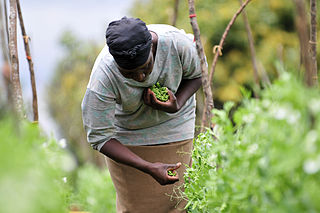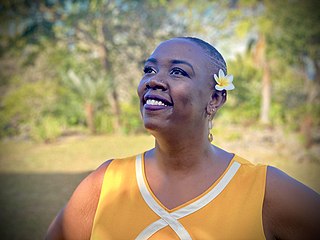
The United Nations Foundation is a charitable organization headquartered in Washington, DC, that supports the United Nations and its activities. It was established in 1998 with a $1 billion gift to the United Nations by philanthropist Ted Turner, who believed the UN was crucial for addressing the world's problems. Originally primarily a grantmaker, the UN Foundation has evolved into a strategic partner to the UN, mobilizing support to advance the Sustainable Development Goals (SDGs), and help the UN address issues such as climate change, global health, gender equality, human rights, data and technology, peace, and humanitarian responses. The UN Foundation's main work occurs through building public-private partnerships, communities, initiatives, campaigns, and alliances to broaden support for the UN and solve global problems. The UN Foundation has helped build awareness and advocate for action on, among others, antimicrobial resistance, regional action on climate change, local implementation of the SDGs, as well as global campaigns such as Nothing But Nets against malaria, the Measles & Rubella Initiative, the Clean Cooking Alliance, Girl Up, Shot@Life, and the Digital Impact Alliance, among others. In March 2020, the UN Foundation was also a key founder of the COVID-19 Solidarity Response Fund on behalf of the World Health Organization (WHO), helping to raise over $200 million USD within the first six weeks to support the global response to the COVID-19 pandemic.

Vandana Shiva is an Indian scholar, environmental activist, food sovereignty advocate, ecofeminist and anti-globalization author. Based in Delhi, Shiva has written more than 20 books. She is often referred to as "Gandhi of grain" for her activism associated with the anti-GMO movement.

The United Nations Conference on Environment and Development (UNCED), also known as the RioConference or the Earth Summit, was a major United Nations conference held in Rio de Janeiro from 3 to 14 June 1992.

Wangarĩ Muta Maathai was a Kenyan social, environmental, and political activist who founded the Green Belt Movement, an environmental non-governmental organization focused on the planting of trees, environmental conservation, and women's rights. In 2004 she became the first African woman to win the Nobel Peace Prize.
The Green Belt Movement (GBM) is an indigenous grassroots organization in Kenya that empowers women through the planting of trees. It is one of the most effective and well-known grassroots organisations addressing the problem of global deforestation. Professor Wangari Maathai established the organization in 1977 under the auspices of the National Council of Women of Kenya (NCWK). GBM's successes in forest conservation, education, and women's economic empowerment have gained the organisation worldwide acclaim. It is also noted for its advocacy of human rights, democratisation of access to public lands, and environmental justice issues such as the role of women's traditional ecological knowledge in addressing environmental degradation and desertification.
Gender mainstreaming is the public policy concept of assessing the implications for people of different genders of a planned policy action, including legislation and programmes. Mainstreaming offers a pluralistic approach that enhances diversity among people of different genders.
Feminist political ecology is a feminist perspective on political ecology, drawing on theories from Marxism, post-structuralism, feminist geography, ecofeminism and cultural ecology. Feminist political ecology examines the place of intersectional social relations in the political ecological landscape, exploring them as a factor in ecological and political relations. Specific areas in which feminist political ecology is focused are development, landscape, resource use, agrarian reconstruction and rural-urban transformation. Feminist political ecologists suggest gender is a crucial variable – in relation to class, race and other relevant dimensions of political ecological life – in constituting access to, control over, and knowledge of natural resources.
In the early 1960s, an interest in women and their connection with the environment was sparked, largely by a book written by Esther Boserup entitled Woman's Role in Economic Development. Starting in the 1980s, policy makers and governments became more mindful of the connection between the environment and gender issues. Changes began to be made regarding natural resource and environmental management with the specific role of women in mind. According to the World Bank in 1991, "Women play an essential role in the management of natural resources, including soil, water, forests and energy...and often have a profound traditional and contemporary knowledge of the natural world around them". Whereas women were previously neglected or ignored, there was increasing attention paid to the impact of women on the natural environment and, in return, the effects the environment has on the health and well-being of women. The gender-environment relations have valuable ramifications in regard to the understanding of nature between men and women, the management and distribution of resources and responsibilities, and the day-to-day life and well-being of people.

The United Nations Forum on Forests (UNFF) is a high-level intergovernmental policy forum. The forum includes all United Nations member states and permanent observers, the UNFF Secretariat, the Collaborative Partnership on Forests, Regional Organizations and Processes and Major Groups.
The Forests Now Declaration is a declaration that advocates using carbon credits to protect tropical forests. The Declaration was created by the Global Canopy Programme, and has been signed by over 200 NGOs, business leaders, scientists and conservationists. The Declaration was created as carbon credits from land use, land-use change and forestry were omitted from the Clean Development Mechanism for the First Commitment Period of the Kyoto Protocol despite contributing 18–25% of all emissions.

The Center for Women's Global Leadership, based at Rutgers University, was founded in 1989 by Charlotte Bunch, the former executive director and an internationally renowned activist for women's human rights. Executive Director Krishanti Dharmaraj is also the founder of the Dignity Index and co-founder of WILD for Human Rights and the Sri Lanka Children's Fund. The former executive director, Radhika Balakrishnan, is now the faculty director, and a professor in the Department of Women's and Gender Studies at Rutgers, chair of the Board of the US Human Rights Network, and a board member of the Center for Constitutional Rights. Located on Douglass Residential College at Rutgers University, CWGL is a unit of International Programs within the School of Arts and Sciences and is a member of the Institute for Women's Leadership, a consortium of women's programs at Rutgers.
Women Engage for a Common Future (WECF), formerly known as Women in Europe for a Common Future, is a non-governmental organization created in 1994 following the 1992 Earth Summit in Rio de Janeiro. The aim of the organization is to "achieve an equitable and sustainable healthy environment for all". WECF is a network of more than 150 women's and environmental organizations in 50 countries worldwide. WECF also works on national, European, UN and international political levels with the aim to increase women's influence in political decision-making processes.

The Gender Equality Architecture Reform (GEAR) campaign was a network of over 300 women's, human rights and social justice groups around the world. The GEAR campaign urged UN Member States and the UN Secretariat to move swiftly forward to create a new UN gender equality entity. GEAR also urges the UN to set up a transparent process now for recruiting the best qualified Under Secretary-General to head this agency. The United Nations must move without further delay to implement changes that it has repeatedly recognized as critical to fulfilling its mandate of working for gender equality as a crucial component of development, human rights, peace, and security.

Climate change affects men and women differently. Climate change and gender examines how men and women access and use resources that are impacted by climate change and how they experience the resulting impacts. It examines how gender roles and cultural norms influence the ability of men and women to respond to climate change, and how women's and men's roles can be better integrated into climate change adaptation and mitigation strategies. It also considers how climate change intersects with other gender-related challenges, such as poverty, access to resources, and unequal power dynamics. Ultimately, the goal of this research is to ensure that climate change policies and initiatives are equitable, and that both women and men benefit from them. Climate change increases gender inequality, reduces women's ability to be financially independent, and has an overall negative impact on the social and political rights of women, especially in economies that are heavily based on agriculture. In many cases, gender inequality means that women are more vulnerable to the negative effects of climate change. This is due to gender roles, particularly in the developing world, which means that women are often dependent on the natural environment for subsistence and income. By further limiting women's already constrained access to physical, social, political, and fiscal resources, climate change often burdens women more than men and can magnify existing gender inequality.
Soon-Young Yoon is a Korean-American advocate for women's human rights and author of "Citizen of the World -- Soon-Young and the UN". She currently serves as a United Nations representative of the International Alliance of Women. In 2020, she founded the Cities for CEDAW History and Futures Project of which she is currently co-director.

Ecofeminism is a branch of feminism and political ecology. Ecofeminist thinkers draw on the concept of gender to analyse the relationships between humans and the natural world. The term was coined by the French writer Françoise d'Eaubonne in her book Le Féminisme ou la Mort (1974). Ecofeminist theory asserts a feminist perspective of Green politics that calls for an egalitarian, collaborative society in which there is no one dominant group. Today, there are several branches of ecofeminism, with varying approaches and analyses, including liberal ecofeminism, spiritual/cultural ecofeminism, and social/socialist ecofeminism. Interpretations of ecofeminism and how it might be applied to social thought include ecofeminist art, social justice and political philosophy, religion, contemporary feminism, and poetry.

Wanjiru Kamau-Rutenberg is an Executive in Residence at Schmidt Futures. Before that she was Director of African Women in Agricultural Research and Development (AWARD). Wanjiru is also the Founder and past Executive Director of Akili Dada, a leadership incubator for African girls and young women and a former Assistant Professor of Politics at the University of San Francisco.
Foreign aid for gender equality in Jordan includes programs funded by governments or non-governmental organizations (NGOs) that aim to empower women, close gender based gaps in opportunity and experience, and promote equal access to education, economic empowerment, and political representation in the Hashemite Kingdom of Jordan.

Elizabeth Wanjiru Wathuti is a Kenyan environment and climate activist and founder of the Green Generation Initiative, which nurtures young people to love nature and be environmentally conscious at a young age and has now planted 30,000 tree seedlings in Kenya.
Feminist foreign policy, or feminist diplomacy, is a strategy integrated into the policies and practices of a state to promote gender equality, and to help improve women's access to resources, basic human rights, and political participation. It can often be bucketed into three categories: rights, resources, and representation. The concept was first coined and integrated into governmental policy by Margot Wallström, former Swedish Foreign Affairs Minister.










